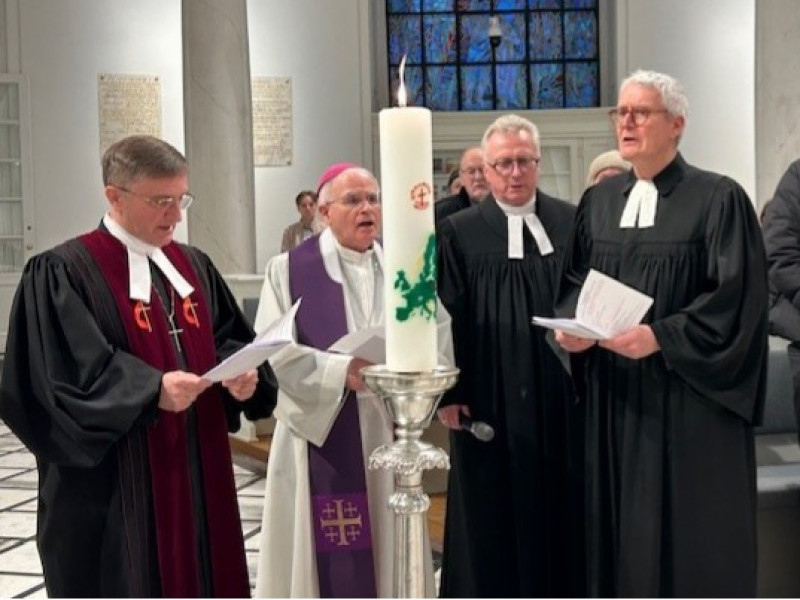
Rev. Frank-Dieter Fischbach, General Secretary of the Conference of European Churches (CEC), delivered a reflective sermon during an ecumenical liturgy in Warsaw, held on 6 April 2025, before CEC and the Commission of the Bishops’ Conferences of the European Union (COMECE) met with government officials related to Poland’s EU Council Presidency.
The service, hosted at the Evangelical-Augsburg Church of the Holy Trinity, was jointly organised by the Polish Ecumenical Council, CEC, COMECE, and the Evangelical-Augsburg Parish. It brought together voices from across Christian traditions to pray for unity and shared responsibility for the future of Europe.
Preaching on the Passion narrative from the Gospel of John, Fischbach invited reflection on Christ standing before power, alone and exposed. “Ecce homo – behold the man,” he said. “This man, forsaken by all, is the Son of God. And in him, we are not forsaken. He brings us together to walk as companions—across Europe and beyond.”
Drawing connections between Scripture and contemporary realities, he cautioned against the misuse of authority. “Religious institutions can become blind, losing sight of God’s truth. This danger is not behind us—it is among us still,” he said. He stressed the gift of ecumenical encounter as a space for correction, learning, and deepened understanding between churches.
The CEC General Secretary also addressed the challenges facing Europe today, particularly in light of ongoing war and global instability. “The Passion story reminds us what happens when the rule of law is replaced by the law of power. We see this tragically in Ukraine. Europe must remember the strength of solidarity, justice and compassion.”
Looking ahead, he announced that churches will soon sign a renewed version of the Charta Oecumenica, a joint commitment by European churches to promote unity and common witness in today’s Europe. “We describe who we are as churches and how we want to contribute to this continent. Again: syn hodos – together on the way.”
Reflecting on his own experience of European unity, Fischbach recalled 1 May 2004, the day Poland joined the European Union. “I stood on the Polish side of a bridge over the Neisse, overwhelmed by the feeling of hope and togetherness. That memory stays with me—a symbol of what Europe can be when we choose community over division.”
The timing of the service marks a significant moment as churches prepare to meet with Polish authorities to share their perspective on Europe’s future under Poland’s leadership in the EU.